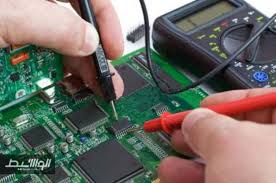
Nature of work
As an electronics engineer you will design and develop electronic equipment such as broadcast and communications systems, from portable music players to global positioning systems (GPS) in addition to working in areas closely related to computer hardware.Also, you will work on a project through all its stages: from the initial brief for a concept; through the design and development stage; to the testing of one or more prototypes; and through to the final manufacture and implementation of a new product or system.
Your duties vary depending on the industry, but you have to do main typical tasks like, discussing proposals with clients, testing theoretical designs, and working with colleagues to design new systems, circuits and devices or develop existing technology. Moreover, you have to handle following defined development processes, improving the detailed design of a piece of electronic equipment systematically, creating user-friendly interfaces, and ensuring safety regulations are met.
Furthermore, you will plan project, prepare budgets, attend meetings with subcontractors, supervise technicians, craftspeople and other colleagues, and writing technical reports.
Environment of work
Your work usually takes place in a laboratory or office environment, although some projects may required to work in workshops, factories, or even outdoors. Short-term contract work is possible, and is often arranged through agencies. If you don’t like to be an employee, Self-employment and freelance work are sometimes possible for qualified engineers with a good track record and experience. Hopefully you like travelling because travel within a working day is frequent and Overnight absence from home and overseas work/travel may be required, depending on the employer and nature of the business. The Opportunities for this career are usually available in areas with a strong manufacturing or research base. Unfortunately, women are usually underrepresented in the field of this career. Professional life
This career offers you a good opportunity for progression. Your career as an engineer leads to senior positions like managing other staff and/or larger projects and budgets. For instance, If you are a qualified engineer you may become a senior manager, or move into other roles within the industry, such as recruitment, training, sales or marketing. In addition, it is increasingly important to achieve professional status as an engineer to accomplish more career progression.The Order of Syrian Engineering maintains the national syrian register of professional engineers. To gain registration, you must demonstrate competence underwritten by education, training and responsible experience.
As companies operate in an increasingly global market, language skills and international registration may improve your prospects for career progression, as well as opportunities for working overseas. As a new graduate your starting monthly salary is in the range of 24000-30000.
Getting the job
If you are considering applying for an electronics engineer position, you have to get a degree in electrical or electronic engineering. Other relevant subjects for entry into the profession include: communications engineering;
aeronautical engineering;
mechanical engineering;
physics and applied physics;
computer/computer-aided engineering;
production and manufacturing engineering;
mathematics;
Computer science/software engineering.
No matter if you don’t have a previous experience. However, it is a strong asset for you as well as a relevant placement or industry-based project. As an applicant having a diploma for engineering technician posts may be considered as an advantage for some employers. Technician training can lead you to experience of electronics development and design work at a lower level.
Skills
Besides your Bachelor degree, your job as an electronics engineer requires certain skills. To help you out, we have provide you with a list of the most important skill you may need to be successful in your job. a high level of technical knowledge and IT skills;
strong analysis and practical problem-solving abilities;
oral, written and diagrammatic communication skills, with the ability to translate complex ideas into clear concepts;
creativity, innovation and attention to detail;
strategic thinking and commercial awareness;
organisation, project management and leadership skills;
ability to work in a multidisciplinary team;
an understanding of electrical health and safety legislation.
Sources and references
For further information about this career you can visit the following websites: www.syriaengineer.com, Syrian Engineer Directory
The Order of syrian engineers, Damascus, Tel: 6627256
www.arab-eng.org, Arab Engineers Forum.
Arab Standard Classification of Occupations, 2008, Ed. Arab Labor Organization.
Summary
Electronics is the technology associated with electronic circuits and systems, and is one of the major branches of electrical engineering.As an electronics engineer your tasks revolve around researching, designing, developing and testing precision components and systems,and developing the way electricity is used to control equipment. Usually you will carry out your job in cross-functional project teams, with colleagues in electronics and other branches of engineering.
